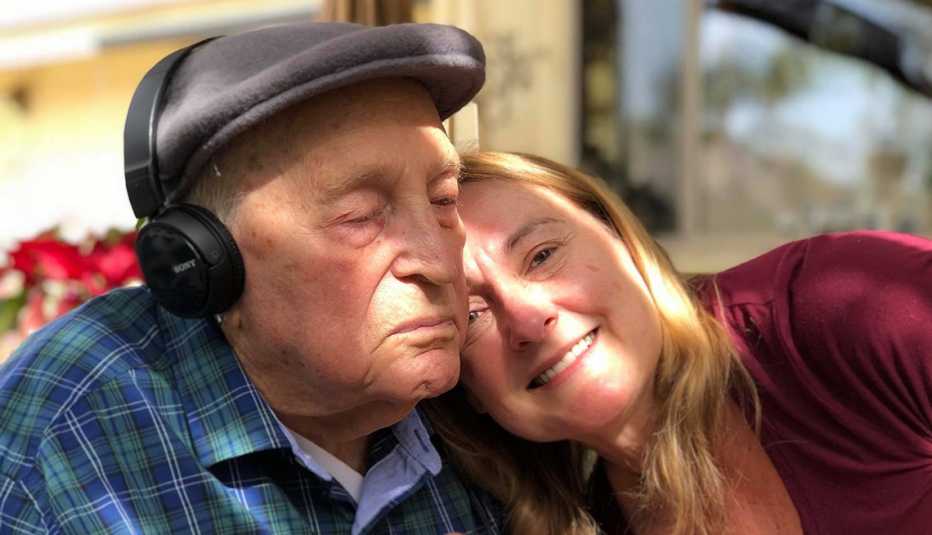Staying Fit
Looking back, the first clue to my dad’s journey with Alzheimer’s disease was his increasingly high stress levels when managing more complicated financial tasks, like refinancing the house, dealing with debt, managing a property in another state and organizing things for his accountant to do his taxes. My sister and I began helping him with some of these tasks, and bit by bit, I took over paying my parents’ bills. Eventually, I managed all of their financial matters. On top of intensive hands-on care, it was one of the most difficult aspects of caregiving for me.


AARP Membership— $12 for your first year when you sign up for Automatic Renewal
Get instant access to members-only products and hundreds of discounts, a free second membership, and a subscription to AARP the Magazine.
Gradually increasing support
Mom had a stroke when she was just 63, so Dad had managed their finances for about 20 years. One day while visiting my parents, my dad (who was in his early 80s at the time) said he was going into his study to “work on the bills.” When I noticed he had been gone a long time, I went to check on him. He had many stacks of papers organized on his desk, with sticky notes on top saying “Ask Amy.” I respectfully asked if he would like some help with all the paperwork. I knew this would be a more palatable way to approach the subject than asking directly about managing or even “taking over” the finances. I was lucky; he said he’d be very grateful for the assistance. Many family caregivers struggle to convince their loved ones to accept help with finances.
I already had power of attorney for finances for both of my parents, and I was grateful that they had taken care of their advance directives and estate planning many years prior. Dad was still able to manage day-to-day finances, and I knew it was very important for him to maintain that, for both cognitive stimulation and self-esteem. So I focused on gently increasing support over time. I didn’t want to take on anything he was still able to do. No one wants to feel they are inept or that their personal matters need to be “taken over.” Dad was extremely intelligent, a university professor, and he had handled things for so long. I wanted to make it easier for him to accept help. While he did use a computer, I couched it as being easier for me to manage things because I knew more about using computers. He liked that idea.
I managed their bill paying from their primary account and made everything paperless. The first couple of years, when I was living across the country from my parents, technology made handling finances doable. We opened a separate checking account, and I transferred money into it monthly so he could use it for “spending money” — groceries, gas, haircuts, Mom’s nails, his massages, clothing, dog care and minor household matters. He was able to use the ATM and write checks for those smaller expenses without worrying about the larger financial picture. I kept a close eye on things, and we never had a problem with that system. If you try this with your loved ones, be sure they can safely continue using checks, debit cards and smaller amounts of cash. I took full advantage of the ability to set up alerts and notifications for all their accounts, so I knew if an unusual amount of money was withdrawn or if balances were low.




































































